Quebec regulates the awarding of public contracts, but it imposes no laws, no rules and no standards for the sale of government-owned real estate, an examination by the Montreal Gazette has found.
Real eState
There are no rules for selling government real estate in Quebec
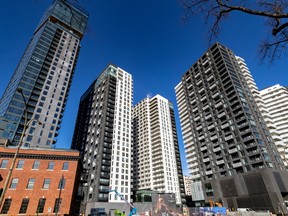
The Gazette discovered the absence of a legislative or regulatory framework for the disposal of public buildings while examining the sale of the former Montreal Children’s Hospital site.
The buyer sold the air rights on part of the site to another developer for $35 million the day before signing the $25-million purchase from the MUHC at the notary’s office. The buyer, 9333-8580 Québec Inc., later sold more air rights to the developer for another $9 million to build on another part of the site.
Sarto Blouin, the businessman who bought the Children’s through 9333-8580 Québec Inc., said he and his partner’s $25-million offer was the most attractive because it was unconditional, while the competing offers were contingent on obtaining financing or a zoning change.
The MUHC said in a statement that it had sold the Children’s in a “formal public tender process.” The MUHC also called it a “rigorous tendering and analysis process.”
“This process was government-led and complied with all standards and procedures used to govern this procedure,” it said.
Tenders not required to sell property
Quebec’s Act Respecting Contracting by Public Bodies regulates the “public call for tenders” mechanism. The law requires the call for tenders to be published in the province’s electronic tendering system, the Système électronique d’appel d’offres du gouvernement du Québec (SEAO). As well, the bidders’ names and their prices are supposed to be rendered public in the SEAO after the bid envelopes are opened.
No call for tenders was posted in the SEAO for the Children’s, though the Société québécoise des infrastructures (SQI), the provincial department that organized the sale, published several calls for tenders there to sell other government properties at the time of the Children’s sale.
In fact, the Gazette’s examination found that while the SQI regularly publishes public calls for tenders to sell government property in the SEAO, it rarely discloses bidders’ names and prices after the bids are opened.
In the case of the Children’s, the SQI published a call for tenders in the SEAO to hire a real estate broker to sell the property. The broker placed an ad in two Montreal daily newspapers to announce the Children’s was for sale. The ad said “Public Call for Tenders,” but also said potential bidders had to sign a confidentiality agreement.

Other bids kept secret
The MUHC and the SQI have never disclosed the prices that were offered for the Children’s or who made the offers.
The MUHC, the Health Ministry and the SQI refused a Gazette access-to-information request this year to obtain the names of the bidders and the prices they offered for the Children’s and for a second former hospital, the Montreal Chest Institute. The SQI claims it’s confidential information. The Gazette has filed a notice to appeal.
The SQI recently hired the same broker that helped sell the Children’s, CBRE, to sell another building belonging to the Health Ministry in Montreal at 90 de la Gauchetière St. E. The public call for tenders notice for the building in the SEAO says CBRE is requesting bids on behalf of the SQI. And despite being in the SEAO, the notice states that potential bidders are required to sign a confidentiality agreement and that “purchase proposals will not be opened publicly.”
“There is no formal rule,” ministry spokesperson Noémie Vanheuverzwijn said in a written response to the Gazette confirming that a public call for tenders is optional to sell a building belonging to the ministry. “However, the Health Ministry makes sure to apply the best practices.”
Despite the absence of rules to govern the process, the Health Ministry “ensures that it demonstrates sound management of public funds,” Vanheuverzwijn said.
The only legal requirement to sell surplus Health Ministry buildings, such as a vacant hospital, is for the ministry and the Treasury Board to OK the decision to sell. As well, the purchaser’s name and the sale price are rendered public.
How Quebec sells surplus property
The premise in the Quebec Civil Code is that public property serving a public use cannot be sold. A government body has to remove the public vocation, declaring it surplus property, before it can sell it.
The clerk or treasurer of a municipality must publish a monthly notice of municipal property worth more than $10,000 that was sold and include the buyer’s name and the price.
However, Quebec has a law governing the sale of certain municipal properties for industrial and research purposes.
The Quebec government offered the Children’s site to other public bodies, including the city of Montreal, before offering it on the market. The other public bodies turned it down.
However, the offer of first dibs to public bodies is optional in Quebec.
Ontario has more strict requirements
By comparison, Ontario requires surplus provincial property to be offered to other public bodies before putting it on the market. In fact, since 2013, Ontario includes not-for-profit corporations “that provide a public benefit” on the list of public bodies to whom surplus government real estate must be offered for purchase at market value before it’s placed for sale on the open market.
However, Ontario doesn’t require a public call for tenders to sell government property.
‘Quite troubling’
Housing activist Éric Michaud, co-ordinator of Habiter Ville-Marie, one of the groups that objected to selling the Children’s for private development, said he’s shocked to learn that Quebec has no legislation or regulations controlling the sale of public property.
“I am very surprised by this and I find it quite troubling because we see all the mechanisms that frame the granting of public contracts, and there’s nothing for the sale of public buildings,” he said.
“Often, government buildings are of great heritage value or financial value because they’re in strategic locations. I find it incredible that there isn’t more regulation.”
Broker better than SEAO, buyer says
Meanwhile, the buyer of the Children’s said he wouldn’t object if the government sold all real estate through the SEAO.
“It doesn’t bother me,” Blouin said. “If it enables getting a better price.”
But the SEAO is unlikely to elicit better prices, he added. The SEAO is more laborious than working with a real estate broker, Blouin said.
“The big players don’t do that. I never go look on SEAO. I wouldn’t even know they’re selling a hospital. If someone like me or like Devimco doesn’t know something is for sale on SEAO, probably you won’t get a better price.”
Major “players” are solicited directly by global real estate companies, Blouin said. “Governments do business with (brokers) for a reason: because they have much bigger databases than SEAO.”
He added that it’s normal practice to sign non-disclosure agreements when doing business with real estate brokers.
Blouin said he recently used CBRE to sell his stake in one of the towers on the Children’s site, 1111 Atwater. He got seven offers, five of which came from outside Quebec, he said.
“I bid on the Chest Institute, I bid on Radio-Canada, I bid on a bunch of stuff,” Blouin said, adding that the same developers bid on government properties for sale in Montreal.
The MUHC sold the Montreal Chest Institute in 2019 to a numbered company that was represented in the sales deed by Tinel Timu, a developer who was shot and killed this past April. Timu withdrew from the company at the time of the sale.

Real eState
Two Quebec real estate brokers suspended for using fake bids to drive up prices
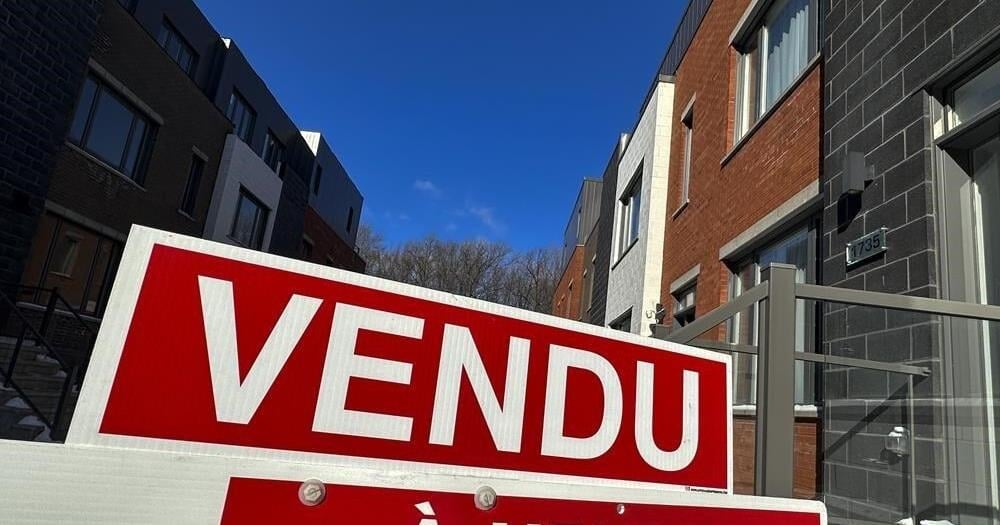
MONTREAL – Two Quebec real estate brokers are facing fines and years-long suspensions for submitting bogus offers on homes to drive up prices during the COVID-19 pandemic.
Christine Girouard has been suspended for 14 years and her business partner, Jonathan Dauphinais-Fortin, has been suspended for nine years after Quebec’s authority of real estate brokerage found they used fake bids to get buyers to raise their offers.
Girouard is a well-known broker who previously starred on a Quebec reality show that follows top real estate agents in the province.
She is facing a fine of $50,000, while Dauphinais-Fortin has been fined $10,000.
The two brokers were suspended in May 2023 after La Presse published an article about their practices.
One buyer ended up paying $40,000 more than his initial offer in 2022 after Girouard and Dauphinais-Fortin concocted a second bid on the house he wanted to buy.
This report by The Canadian Press was first published Sept. 11, 2024.
The Canadian Press. All rights reserved.
Real eState
Montreal home sales, prices rise in August: real estate board
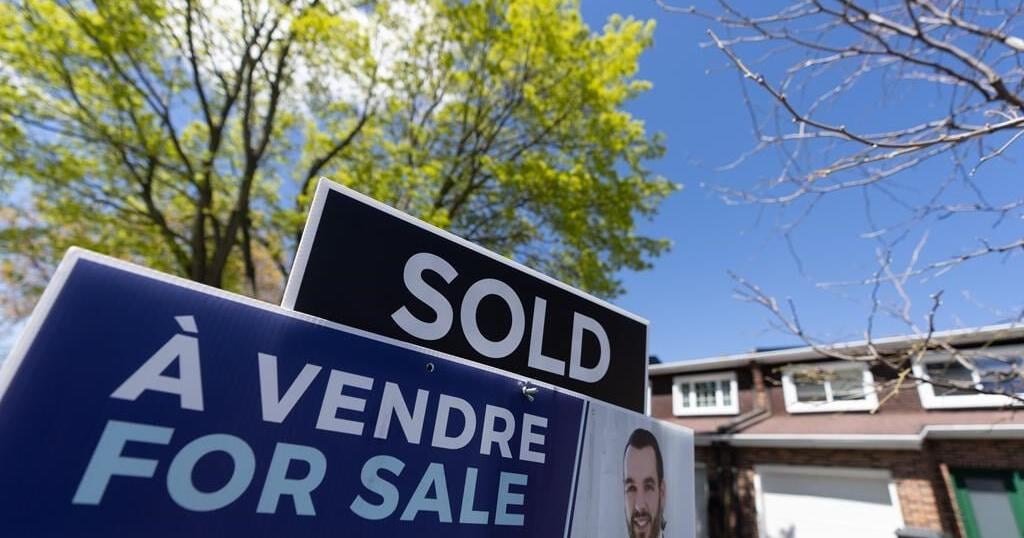
MONTREAL – The Quebec Professional Association of Real Estate Brokers says Montreal-area home sales rose 9.3 per cent in August compared with the same month last year, with levels slightly higher than the historical average for this time of year.
The association says home sales in the region totalled 2,991 for the month, up from 2,737 in August 2023.
The median price for all housing types was up year-over-year, led by a six per cent increase for the price of a plex at $763,000 last month.
The median price for a single-family home rose 5.2 per cent to $590,000 and the median price for a condominium rose 4.4 per cent to $407,100.
QPAREB market analysis director Charles Brant says the strength of the Montreal resale market contrasts with declines in many other Canadian cities struggling with higher levels of household debt, lower savings and diminishing purchasing power.
Active listings for August jumped 18 per cent compared with a year earlier to 17,200, while new listings rose 1.7 per cent to 4,840.
This report by The Canadian Press was first published Sept. 6, 2024.
The Canadian Press. All rights reserved.
Real eState
Canada’s Best Cities for Renters in 2024: A Comprehensive Analysis

In the quest to find cities where renters can enjoy the best of all worlds, a recent study analyzed 24 metrics across three key categories—Housing & Economy, Quality of Life, and Community. The study ranked the 100 largest cities in Canada to determine which ones offer the most to their renters.
Here are the top 10 cities that emerged as the best for renters in 2024:
St. John’s, NL

St. John’s, Newfoundland and Labrador, stand out as the top city for renters in Canada for 2024. Known for its vibrant cultural scene, stunning natural beauty, and welcoming community, St. John’s offers an exceptional quality of life. The city boasts affordable housing, a robust economy, and low unemployment rates, making it an attractive option for those seeking a balanced and enriching living experience. Its rich history, picturesque harbour, and dynamic arts scene further enhance its appeal, ensuring that renters can enjoy both comfort and excitement in this charming coastal city.
Sherbrooke, QC

Sherbrooke, Quebec, emerges as a leading city for renters in Canada for 2024, offering a blend of affordability and quality of life. Nestled in the heart of the Eastern Townships, Sherbrooke is known for its picturesque landscapes, vibrant cultural scene, and strong community spirit. The city provides affordable rental options, low living costs, and a thriving local economy, making it an ideal destination for those seeking both comfort and economic stability. With its rich history, numerous parks, and dynamic arts and education sectors, Sherbrooke presents an inviting environment for renters looking for a well-rounded lifestyle.
Québec City, QC
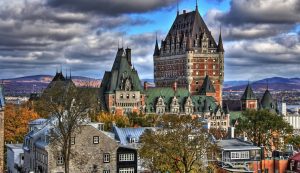
Québec City, the capital of Quebec, stands out as a premier destination for renters in Canada for 2024. Known for its rich history, stunning architecture, and vibrant cultural heritage, this city offers an exceptional quality of life. Renters benefit from affordable housing, excellent public services, and a robust economy. The city’s charming streets, historic sites, and diverse culinary scene provide a unique living experience. With top-notch education institutions, numerous parks, and a strong sense of community, Québec City is an ideal choice for those seeking a dynamic and fulfilling lifestyle.
Trois-Rivières, QC

Trois-Rivières, nestled between Montreal and Quebec City, emerges as a top choice for renters in Canada. This historic city, known for its picturesque riverside views and rich cultural scene, offers an appealing blend of affordability and quality of life. Renters in Trois-Rivières enjoy reasonable housing costs, a low unemployment rate, and a vibrant community atmosphere. The city’s well-preserved historic sites, bustling arts community, and excellent educational institutions make it an attractive destination for those seeking a balanced and enriching lifestyle.
Saguenay, QC

Saguenay, located in the stunning Saguenay–Lac-Saint-Jean region of Quebec, is a prime destination for renters seeking affordable living amidst breathtaking natural beauty. Known for its picturesque fjords and vibrant cultural scene, Saguenay offers residents a high quality of life with lower housing costs compared to major urban centers. The city boasts a strong sense of community, excellent recreational opportunities, and a growing economy. For those looking to combine affordability with a rich cultural and natural environment, Saguenay stands out as an ideal choice.
Granby, QC

Fredericton, NB

Saint John, NB
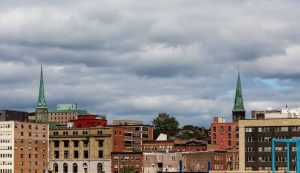
Saint John, New Brunswick’s largest city, is a coastal gem known for its stunning waterfront and rich heritage. Nestled on the Bay of Fundy, it offers renters an affordable cost of living with a unique blend of historic architecture and modern conveniences. The city’s vibrant uptown area is bustling with shops, restaurants, and cultural attractions, while its scenic parks and outdoor spaces provide ample opportunities for recreation. Saint John’s strong sense of community and economic growth make it an inviting place for those looking to enjoy both urban and natural beauty.
Saint-Hyacinthe, QC

Saint-Hyacinthe, located in the Montérégie region of Quebec, is a vibrant city known for its strong agricultural roots and innovative spirit. Often referred to as the “Agricultural Technopolis,” it is home to numerous research centers and educational institutions. Renters in Saint-Hyacinthe benefit from a high quality of life with access to excellent local amenities, including parks, cultural events, and a thriving local food scene. The city’s affordable housing and close-knit community atmosphere make it an attractive option for those seeking a balanced and enriching lifestyle.
Lévis, QC

Lévis, located on the southern shore of the St. Lawrence River across from Quebec City, offers a unique blend of historical charm and modern conveniences. Known for its picturesque views and well-preserved heritage sites, Lévis is a city where history meets contemporary living. Residents enjoy a high quality of life with excellent public services, green spaces, and cultural activities. The city’s affordable housing options and strong sense of community make it a desirable place for renters looking for both tranquility and easy access to urban amenities.
This category looked at factors such as average rent, housing costs, rental availability, and unemployment rates. Québec stood out with 10 cities ranking at the top, demonstrating strong economic stability and affordable housing options, which are critical for renters looking for cost-effective living conditions.
Québec again led the pack in this category, with five cities in the top 10. Ontario followed closely with three cities. British Columbia excelled in walkability, with four cities achieving the highest walk scores, while Caledon topped the list for its extensive green spaces. These factors contribute significantly to the overall quality of life, making these cities attractive for renters.
Victoria, BC, emerged as the leader in this category due to its rich array of restaurants, museums, and educational institutions, offering a vibrant community life. St. John’s, NL, and Vancouver, BC, also ranked highly. Québec City, QC, and Lévis, QC, scored the highest in life satisfaction, reflecting a strong sense of community and well-being. Additionally, Saskatoon, SK, and Oshawa, ON, were noted for having residents with lower stress levels.
For a comprehensive view of the rankings and detailed interactive visuals, you can visit the full study by Point2Homes.
While no city can provide a perfect living experience for every renter, the cities highlighted in this study come remarkably close by excelling in key areas such as housing affordability, quality of life, and community engagement. These findings offer valuable insights for renters seeking the best places to live in Canada in 2024.
-

 Sports21 hours ago
Sports21 hours agoLawyer says Chinese doping case handled ‘reasonably’ but calls WADA’s lack of action “curious”
-

 Sports6 hours ago
Sports6 hours agoDolphins will bring in another quarterback, while Tagovailoa deals with concussion
-

 News22 hours ago
News22 hours agoRCMP say 3 dead, suspects at large in targeted attack at home in Lloydminster, Sask.
-

 News20 hours ago
News20 hours agoB.C. to scrap consumer carbon tax if federal government drops legal requirement: Eby
-

 News21 hours ago
News21 hours agoCeiling high for Vancouver Whitecaps midfielder Ahmed: Canada coach
-

 Sports7 hours ago
Sports7 hours agoDavid Beckham among soccer dignitaries attending ex-England coach Sven-Goran Eriksson’s funeral
-

 News20 hours ago
News20 hours agoA linebacker at West Virginia State is fatally shot on the eve of a game against his old school
-

 News21 hours ago
News21 hours agoOttawa loses bid to quash Israel advocates’ lawsuit calling for halt to UNRWA funding





















